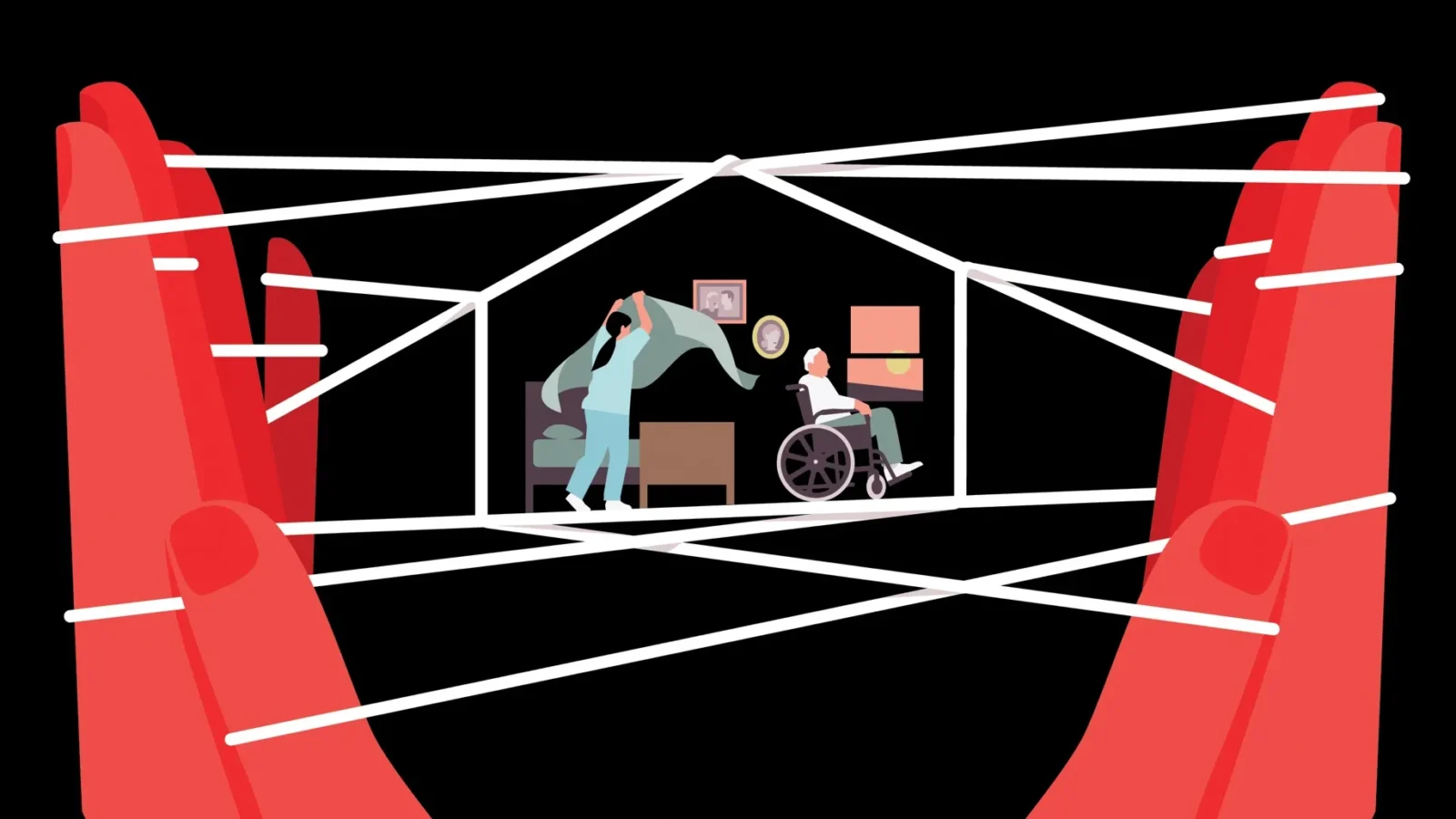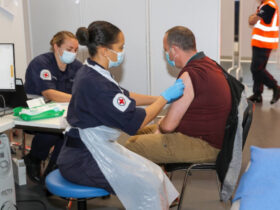In May, Milwaukee factory worker Mike Jackson keeled over in pain on the job and went to the hospital.
A few days later, the father of eight died of complications from COVID-19. Tragically, Jackson had led his coworkers in speaking out to management about what they regarded as unsafe conditions at the Briggs & Stratton facility—a company best known for its small engines.
But not only were his complaints ignored despite clear signs of coronavirus infections, everyone was coerced back to work.
Now, labor and human rights organizations have rallied around Jackson’s case as a totemic example of how the coronavirus crisis has ripped through America’s industrial workplaces–harming people largely based on class lines. Meanwhile, Todd Teske, the chairman of Briggs and Stratton’s board of directors, received $1.2 million in retention awards this month even as the company deferred interest payments.
In an interview with The Bellows, Chance Zombor, Grievance Rep for United Steelworkers Local 2-232 at Briggs & Stratton, whose duties included organizing Jackson’s factory, discussed what this tragedy tells us about the trajectory of American labor during an unprecedented crisis.
THE BELLOWS: What was Mike’s story?
ZOMBOR: While I was out [for seven weeks], the coronavirus stuff started to begin. The day after I got back, Mike and a bunch of people in the area came to me and said they were concerned about safety. One of the guys told me he was on medication. The first person in Milwaukee to die was the father of a worker who actually worked together with them on that same assembly line. They wanted to know what would happen if they walked off the line.
They walked out on the job and called the manager. The manager perceived it as an unauthorized strike; called the union to complain, and coerced them back to work. I wasn’t privy to any of those communications.
At what point did Mike contract the virus?
Mike had been working for weeks with symptoms of the coronavirus. They forced him to work on a Saturday with mandatory overtime. He falls over at the line. By the time I got there, the operations manager walks him out of the shop. But then Mike comes back on Monday, still fallen over, still can’t get up. This time, the EMT carts him out and sends him to the ER. He tests positive for coronavirus. They shut down the plant for the rest of the day, say they are going to clean it and then they want people to come back except two people they wanted to quarantine.
I texted (Mike) a few more times and he said he was feeling better, feeling good. The next weekend, I heard he had died, which came as a shock. The company did absolutely nothing when Mike died. And after that, several more people got it. People were self-quarantining; they didn’t have enough people to run that assembly line. The company claimed they benevolently shut the whole line down so everyone could be tested. That was a load of bullshit. Everyone was infected, exposed, or dead. They didn’t test people because they gave a shit if we lived or died, they did it so they could prove nothing was wrong and have people go back to work.
You also don’t know if the people on the other line are infected. The bosses aren’t wearing masks. I asked the company multiple times for bosses to wear masks, and they refused.
What other steps, if any, did the company take to follow social distancing guidelines suggested by the state?
There‘s no rules, the governor, the CDC are all on their side. We’ve been working through the pandemic, making lawnmowers. That’s essential? What’s essential about our operation, that we make money for billionaires?
They are doling out bonuses for billionaires while employees are being literally worked to death. In manufacturing centers throughout the Midwest, the situation is not unique.
What does this tell us about the state of the American labor movement and U.S. capitalism under the coronavirus crisis?
They used the pandemic as an excuse to ram through things they wanted to do anyway. They are a ruthless, anti-union company and have been for 100 years. There were several attempts by the IWW to organize Briggs and Stratton and were crushed. For the past 30 years or so, the union has been extremely conciliatory. The company threatens to leave Milwaukee and demands concessions and the union does it and they move their operations overseas anyway. They used to have 12,000 employees. Now there are 500 in our unit.
They sent out jobs to China, Mexico, Kentucky, and Missouri. In the last contact, the company demanded one thing—an end to automatic dues deductions. The state held meetings in the plant and did everything to persuade employees to drop the union. It didn’t work. During the last negotiations, the company tried to do direct dealings with members and claimed the union wasn’t letting them vote, offering a signing bonus, and then they walked away and implemented their nuclear option. It forced the union to start with zero dues-paying members. I had to go and sign people up one-by-one. I had to rebuild everything, elect new stewards, everything. The union was on life support, so we elected new stewards and formed an organizing committee. I started putting out a monthly newsletter and just rebuilding the union, what we have now is almost brand new.
We’ve got less than five percent density in the private sector and the labor unions in the U.S. are dead. The unions don’t even think of it as a fight. I’ve seen supposedly unorganized workers standing up and walking out of the job while unionized places are all about how their unions are taking pride and working out of patriotism. None of that has anything to do with class struggle or workers safety. The labor movement is divorced from the left and the left is divorced from the labor movement. Across the board, labor law is set up to stifle the union. Biden isn’t going to make it better, Trump won’t make it better.









